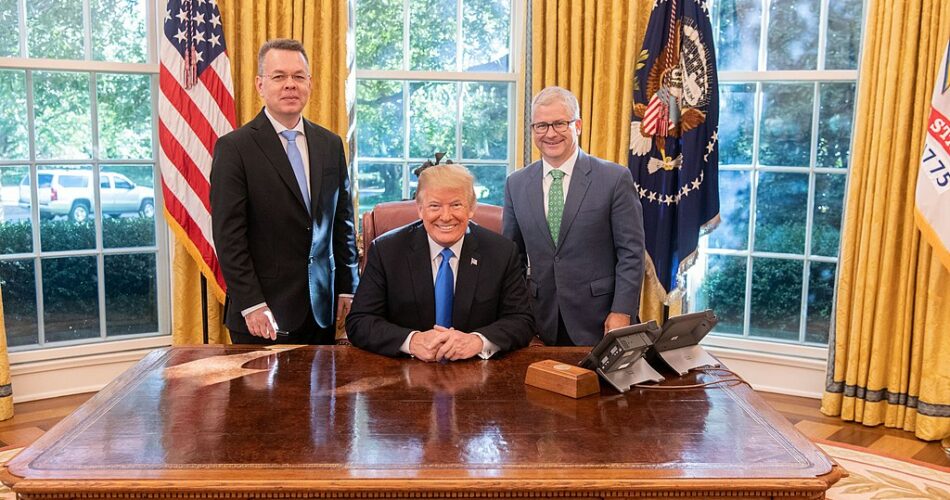They will have a direct line to him.
Former President Donald Trump recently promised to provide religious leaders with direct access to him in the Oval Office if he wins a second term, reaffirming his dedication to supporting the country’s faith community. During a speech at the National Faith Summit in Powder Springs, Georgia, Trump revealed his plans to bring back the Faith Office that he had created during his first presidency. He emphasized the importance of religion to the nation and committed to ensuring faith leaders could communicate directly with him, assuring that their concerns would be addressed.
In response to a query from Paula White-Cain, his former faith advisor, Trump outlined a plan to create a system that would allow religious leaders to engage directly with the administration. White-Cain echoed Trump’s promise, explaining that the Faith Office would be physically located within the Oval Office itself, a gesture that underscores how seriously Trump takes religious issues. She highlighted his firm belief in preserving religious values across all faiths as central to the country’s identity.
As part of this initiative, Trump’s campaign recently appointed Dr. Ben Carson, a former cabinet member and devout Christian, as national faith chairman. Carson’s role will be pivotal in strengthening connections with religious communities to garner support for Trump’s re-election. Trump stated that Carson would be a strong advocate for religious freedom, particularly in light of what he perceives as its decline under the current administration. He also criticized Vice President Kamala Harris and her administration, claiming that their policies undermine the interests of the faith community.
Trump further announced plans to create a task force focused on combating anti-Christian bias. He argued that this initiative is essential to safeguard Americans of faith from rising discrimination and harassment. Trump positioned people of faith as a foundational element of the nation and stressed they should not face persecution for their beliefs. The proposed task force would investigate and address incidents of bias and hostility toward Christians.
Despite Trump’s outreach, a recent study by researcher George Barna found that many Christians remain uncertain about participating in the upcoming election. For those planning not to vote, reasons included disillusionment with the candidates and a lack of engagement with the policies being presented. Furthermore, nearly half of the respondents cited ongoing election controversies as a significant discouraging factor. Trump’s campaign faces the challenge of winning back the faith-based vote as it aims for victory in the next election.
